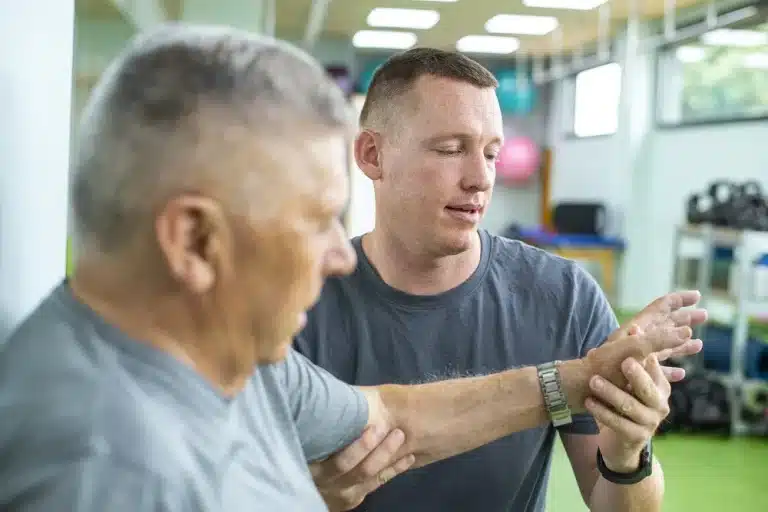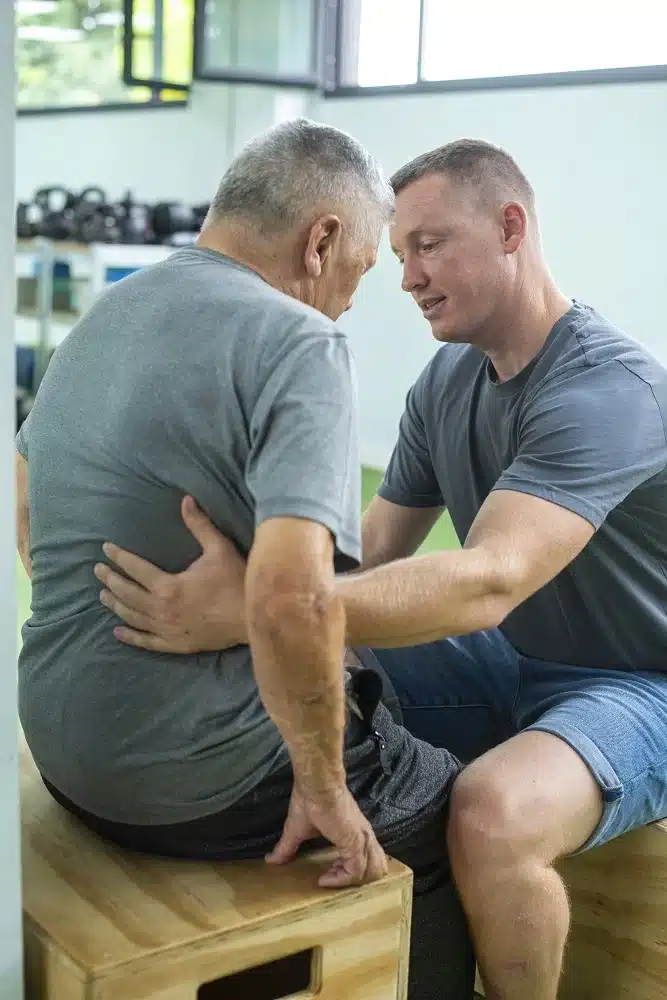Neurological Rehabilitation and Acquired Brain Damage
Acquired Brain Injury is an injury that affects the normal functioning of the brain. It can be due to a variety of reasons, such as head injury, stroke or disease. This can cause problems from movement and speech to memory and concentration.
Neurological rehabilitation is a specialized program to help people regain those lost abilities. It can be a challenging process, but brain plasticity, which is the brain’s ability to adapt and change, plays an important role in recovery.

Causes of Acquired Brain Injury
An illness or an unexpected blow can cause a brain injury that affects the main organ of the central nervous system. There are many causes that can lead to brain injury.
However, we can differentiate between those causes that originate as an external consequence or Traumatic Acquired Brain Injury (traffic accident, fall, gunshot wounds, explosions) or as an internal consequence or Non-Traumatic Acquired Brain Injury (stroke, brain tumor, encephalitis, aneurysm).
Sequelae of DCA
It is normal for a brain injury to leave sequelae that affect the patient’s functioning. However, neurological rehabilitation is highly recommended to help improve brain activity and avoid major sequelae. Each patient is different, therefore the sequelae and the treatment to be followed will be different. The main sequelae of suffering a cerebrovascular accident are:
- Loss of balance and difficulty walking
- Loss of muscle strength
- Difficulty remembering and learning
- Communication difficulty
- Depression
- Impulsivity or aggressiveness
- Anxiety

Our best value, quality and experience
Contact Us
Treatment for Acquired Brain Injury
Goal
The main objective is to restore body movements that have been affected by a disease that influences the normal functioning of the Central Nervous System, preventing a normal life.
Prevention
In addition, with the Bobath concept, we try to prevent and avoid possible secondary disorders or deformities that may arise as a result of the patient's pathology.
Self-sufficiency
And of course, Rehabot sets itself the goal of teaching and educating the patient to become independent in their day-to-day life and regain the ability to carry out activities on their own.
Contact us
Where we are?
Avenida Rey Juan Carlos, Nº15, Coín

The Rehab OT team will answer all your questions. Write us and we will contact you as soon as possible
What diseases do we treat?
Stroke
The objective is to achieve the maximum possible recovery through the relearning of residual capacities, in addition to preventing possible complications. Intensive, specific and meaningful practice will generalize the learning and transfer the new changes.
Multiple Sclerosis
We treat the sequelae during and after the appearance of possible outbreaks, using tools that parameterize exercises and activities with the aim of controlling cardiorespiratory or muscular fatigue, developing strategies that seek the maximum functionality of the patient.
Traumatic Brain Injury
At Rehab OT we have opted for the use of some specific elements in TBI rehabilitation, such as dynamic weight support systems, which can play a differentiating role, combining aerobic and strength training and obtaining very good results.
Spinal Injury
We are committed to maximizing the potential of people with spinal injury, regardless of the type and level of spinal involvement. We adapt to the present deficits through the use of the latest technologies, using technological elements during the treatment.
Parkinson
We work on factors such as strength, cardiorespiratory capacity and gait training in all phases of the disease. We promote an active lifestyle in this neurodegenerative pathology, and we provide the necessary support to promote behavioral change for it.
Childhood Neuropathologies
Paediatric rehabilitation based on giving importance to the family and school environment, and maintaining a playful character, in order to encourage active learning. We guide the child's development, encouraging essential autonomy and acting on possible future complications.






